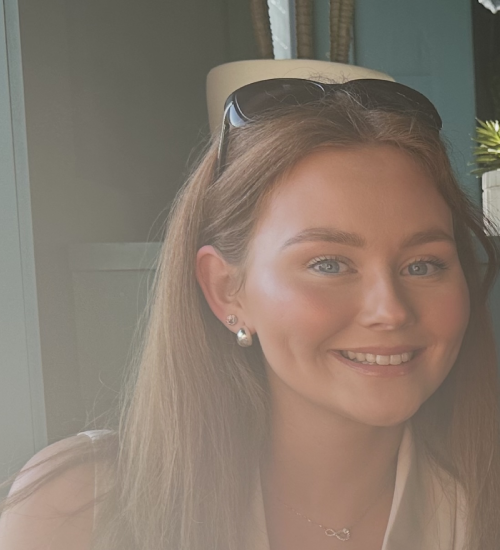

Virtual exchange teamwork
“It was up to us to decide on the ratio English:French that we used,’ she explains. “I had two French partners and this made it less daunting when we first met online.”
The students had three video calls in all, lasting up to 90 minutes at a time. They took notes on their ideas for the tasks and then went away separately to do the work.
“I would often send my partners my French text to check,’ she says. “I didn’t always feel confident about my speaking and writing skills in French. They were very patient and kind and corrected me in the nicest possible way without making me feel awkward and this helped me improve a lot.“
Bilingual video calls
“We used a variety of platforms to communicate on and this was a great opportunity and worked out really well, better than I imagined. I practiced my French a lot and we did for example, the first 15 minutes of our call in English and the last 15 minutes in French. In this way, we all got a chance to improve, although I felt their English was better than my French!”
Anna says her team mates were extremely supportive if she got her verbs wrong or couldn’t remember a word.
“They would correct me and also helped me learn slang. I would never have had the opportunity from tutorials or lectures at university to hear or use street French. I thought this was a fantastic opportunity.“
Motivation and discipline
“My tutor was really great at the start of the exchange and throughout. We had a weekly class before the beginning to discuss expectations and talk about how we would work together. She was very supportive throughout actually and if we had problems communicating with our French peers, she would tell us not to worry and that she would be in direct contact with the other tutor.”
Although the virtual exchange project was mandatory for Anna at the university of Limerick, it was voluntary for the Paris-Saclay students.
“The motivation turned out to be pretty evenly distributed in spite of this difference,’ she says. “They wanted to be there and I had to be there so there was no difference!”
Language and other skills gained
In spite of her initial nerves, Anna says the learning and skills gained were significant.
“I gained confidence in myself and in my ability to speak French and to be understood in French. And my tech skills improved too! I had never had to send a link for a meeting and we had to use a variety of tools for the tasks including to make a podcast. My grammar got better because my peers were correcting and helping me all the time. It was so nice that we were all so patient with each other and allowed each other to make mistakes. We also gave each other space to find a forgotten word. We got faster by the end of it all and our meetings went smoothly.”
Content and tasks
Anna explains how they had to prepare an initial presentation and talk about themselves, their interests and hobbies. They sent pictures to each other and the task needed to be multimedia. Therefore, they had to use text, and video or audio.
“This was a great ice-breaker”, laughs Anna.
“For the podcast, we had to share a poem or a song from our culture. I sent them a song by Picture This which they had to react to, and they asked me to research the importance of the Eiffel Tower in France. We worked separately and then came together to discuss it. We used both languages to do this each of us practicing our target language as much as possible.”
Challenges and advice
One of the main difficulties during the exchange was finding the time for the meetings and the tasks when each partner was dealing with different timetables. Once this and their initial nerves were overcome, Anna says the tasks were fun and useful to carry out.
“If you have the opportunity to take part in a virtual exchange you really should do it’, advises Anna. “It seems a lot of work but it really pays off in the end. It’s the closest you can get to actually doing a physical Erasmus exchange and I strongly recommend taking part.”
